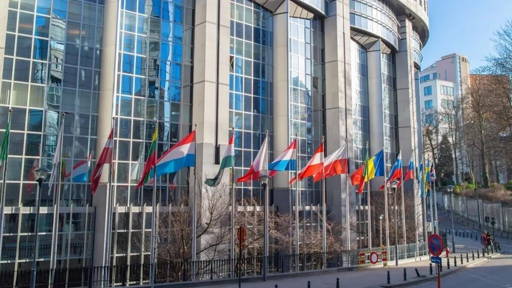The debate on personal data sharing in general, and health data exchange in particular, focuses strongly on the importance of trust and the empowerment of people regarding the control of their data. These elements are seen as a prerequisite for fair and sustainable digital transformation in health. However, what needs to happen for them to materialize? How can we increase citizens’ awareness regarding their health data, namely their rights to access, control, and share it? Do we need to improve health and digital literacy to ensure this? A group of the stakeholders explored these issues from different professional backgrounds at the session “Trust, citizen empowerment and the role of digital literacy on health data sharing” organized by the ECHAlliance and SPMS within DigitalHealthEurope (DHE) project at the Health Data Forum Global Hybrid Summit on October 28.
The core of the discussion departed from the “Recommendations and guidelines on citizen-controlled health data sharing governance “ and the “White paper on better citizen access and control of data”, based on desk research, a European-wide survey and interviews conducted with international experts.
The recommendations themselves are not groundbreaking and follow the thinking also demonstrated in the European Strategy for Data, released in February 2020. This is not bad news. On the contrary – it means that the European health and personal data community share a shared vision on how the personal and health data should be governed, putting the person in the centre and making the individual the main point of integration. However, there is a long way to go before this vision becomes a reality, and there are at least three obstacles on the road, as identified at the session:
Obstacle nr 1: Digital literacy – seen as an absolute prerequisite for the digital transformation in the access and citizen’s control over their health data, requires political will, multi-stakeholder action going beyond the healthcare system and education boards, and massive investments. This should be seen as the number one priority by the European Union, as well as national and local governments.
Obstacle nr 2: People’s awareness on the relevance of their data –- perhaps as a result of gaps in health and digital literacy, people might not be able to fully understand the way the data about them can be collected, used and reused. It limits the understanding of the risk related to uncontrolled data sharing but also the benefits that can come from the ethical use of the personal and health data for the common good. Better communication in this matter is needed.
Obstacle nr 3: Incentives for data sharing – while most of the people don’t expect a financial revenue for their data, they would like to see them being used in a meaningful and beneficial way. Also, safe data sharing should be uncomplicated. Currently, because of complex consent mechanisms, it is probably easier to close access to the data entirely than to share it in a trustworthy way.
If we overcome these obstacles, we should be able to empower people, give them a real choice to share their data, unlocking this potential in the best way possible for societal good.
The discussion carried out by the DigitalHealthEurope project will continue at the MyData Online 2020 Conference in December 2020.
Karolina Mackiewicz has over 10 years of professional experience in international projects in the area of health and well-being. She worked for the WHO European Healthy Cities network, leading the WHO Collaborating Centre for Healthy Cities and Urban Health in the Baltic Sea Region. She is especially interested in digital health, socio-economic determinants of health and health literacy. Currently, she combines the work of the Events Lead at MyData Global and the Senior Project Manager at ECHA. Her professional mission is to bring bridges between the different sectors for a more just and sustainable future.
Carina Dantas is International Project Manager for the ECHAlliance, a member of the Expert Team developing the EU Ethics framework for the ICT Profession (CEN/CENELEC), and Team Leader of the group of experts designing the Reference Guidelines in the Field of Ethics, Data Privacy and Security of the AAL Programme. She is Vice-President of the European Covenant on Demographic Change, Coordinated of the Stakeholders Network SHAFE – Smart Healthy Age-friendly Environments, CEO of SHINE 2Europe, and evaluator/reviewer for the European Commission, AAL and EIT Digital.
European Strategy for Data. What is it about?
The European strategy for data aims at creating a single market for data that will ensure Europe’s global competitiveness and data sovereignty. Common European data spaces will ensure that more data becomes available for use in the economy and society while keeping companies and individuals who generate the data in control.






